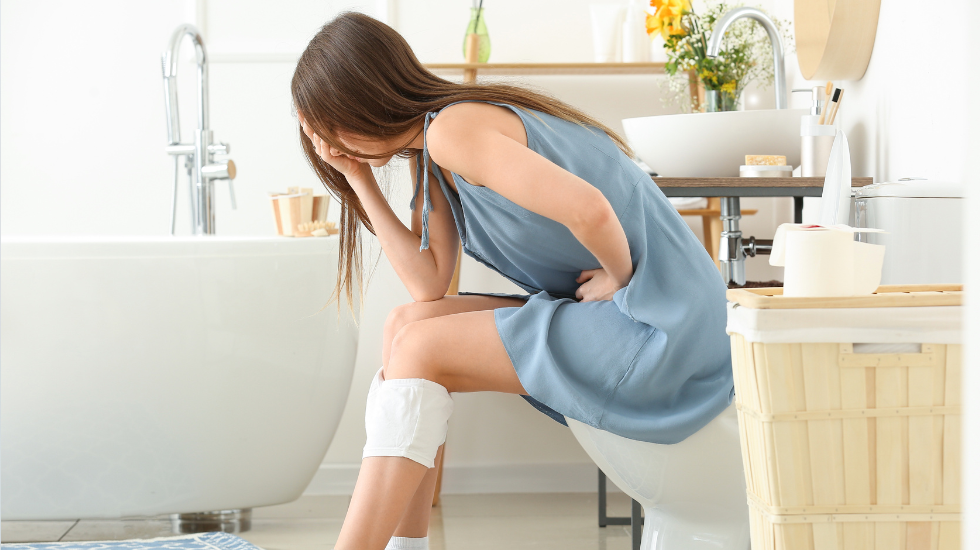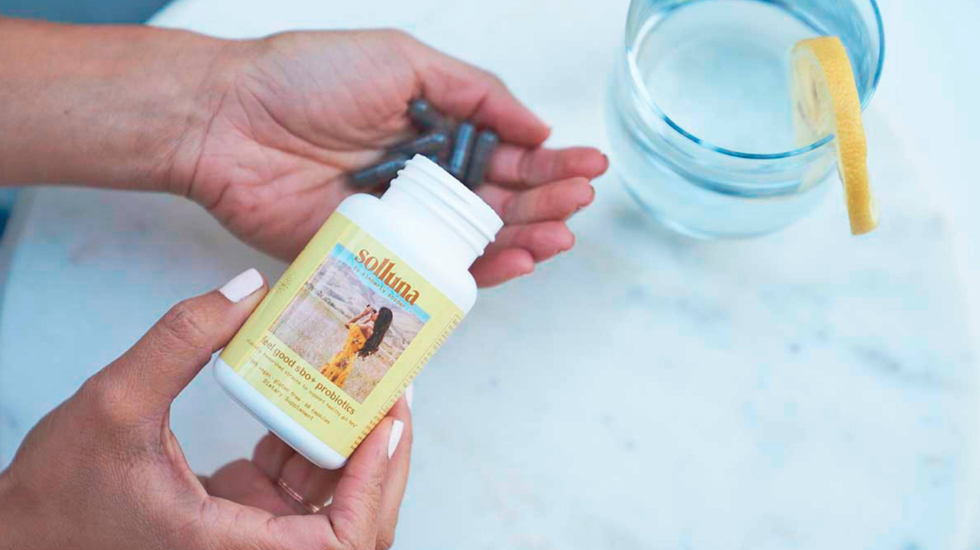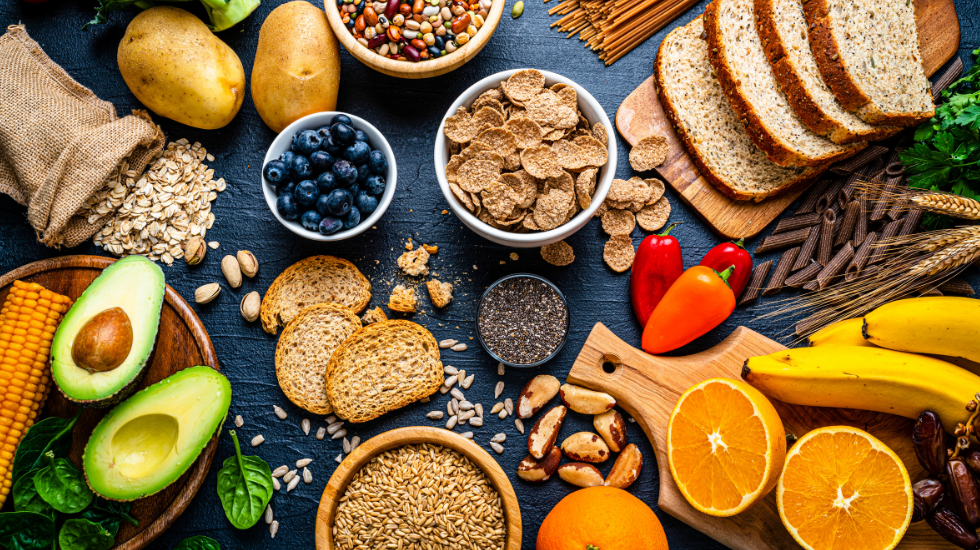Good digestive health is foundational to our overall well-being, influencing not just our physical state but our energy, skin health, mood, and immune system. An often-overlooked marker of our health’s status is the regularity and ease of our bowel movements. Constipation, even on an occasional basis, can be a sign that not everything is as balanced as it should be.
I’ve personally experienced the trials of constipation, enduring years where it felt like a normal part of life. It was only after addressing it that I realized the profound effect regular bowel movements had on my energy and skin clarity.
While it’s true that laxatives can offer a temporary solution, their frequent use comes with a cautionary tale. Relying on them too heavily can lead to a host of unwanted long-term side effects, casting them as a less-than-ideal option for managing constipation. This reality prompts a deeper exploration into why these commonly turned-to remedies might not be as benign as they seem.
Common Types of Over-The-Counter Laxatives
Constipation occurs when waste can’t easily move along your colon, resulting in infrequent bowel movements, small stools or straining. If you’re constipated, your stool has been in the colon too long and becomes dried out, hard, and more difficult to pass.
If you’re looking for how you can relieve your constipation quickly, you may be tempted to try a laxative. Let’s take a look at the different kinds of over-the-counter laxatives and their potential risks.
There are a variety of over-the-counter laxatives available, each of which relieves constipation in different ways:
- Osmotic laxatives increase the frequency of movements by helping draw more water into the lumen (the interior) of the large intestine to produce softer and easier-to-pass stools.
- Bulk forming laxatives absorb water to create soft, bulky stool.
- Stool softener laxatives soften stool to make it easier to pass.
- Stimulant laxatives contract the intestinal muscles to encourage bowel movements.
- Saline laxatives encourage a bowel movement by pulling water into the small intestine and softening the stool. They are used for rapid emptying of the bowel, and often used to cleanse the colon in preparation for a colonoscopy. They should not be used for long-term or repeated correction of constipation.
- Rectal suppository laxatives soften stool and trigger contractions of the intestinal muscles.
Are Laxatives Bad For You?
In a word, yes. Laxatives, especially stimulant laxatives, can have a slew of harmful side effects including:
- Dehydration
- Electrolyte imbalance
- Potential interaction with other medications
- Severe cramps, weakness, dizziness, rectal bleeding, and bloody stools [3]
- Ingredients can be passed into breast milk, which can cause diarrhea in babies
- Bowel reflexes become weaker (affecting your colon’s ability to contract)
- Potential for future dependency or laxative abuse
That’s right, you can become physically addicted to using laxatives, particularly if you start using them regularly. Dr. Stanley Rosenberg, assistant professor of medicine at Harvard Medical School, says “Laxatives may seem like the quickest and simplest solution, but they’re not a good idea. If people go right to stimulant laxatives, there is a risk that they’ll become physically dependent on them.” [4]
One study found that the mucosal lining was negatively impacted to the point where the natural folds inside of the intestine had turned completely smooth— Once the colon loses its shape, form, and elasticity, it’s no longer as effective in terms of waste removal. As a result, you begin to rely on laxatives. [5]
Dependency on laxatives can create a vicious cycle: you become dependent on laxatives for regular bowel movements, which can cause your bowels to lose their ability to contract, creating further dependency on the laxative.
The Dangers of Laxative Dependency
That’s not all. Many additional health problems can arise from laxative dependency. In fact, research has revealed that excessive laxative use can lead to dehydration, as well as hypokalemia, a severe depletion of potassium. [6] Chronic overuse of laxatives has also been linked to impaired kidney function, muscle weakness, and edema.
The way laxatives work is that they stimulate your bowel movements, but you’re not just losing waste in the process— you’re also losing electrolytes like potassium and sodium, as well as lots of water. Electrolyte imbalance is a serious issue. It can lead to any number of symptoms from weakness and confusion to an abnormal heartbeat and seizures.
Using Laxatives for Weight Loss
Many consider laxatives to be an effective tool for weight loss. I cannot stress this enough: using laxative for weight loss is a bad idea! In addition to the damage that laxatives can inflict on your bowels, laxative abuse for weight loss is an eating disorder. And like well-known disorders such as Anorexia Nervosa or Bulimia Nervosa, laxative abuse is a serious and dangerous health risk. [7]
Please don’t risk your health for empty promises of fast or “easy” weight loss. If you or someone you know is struggling with an eating disorder, help is available.
If you are experiencing constipation, covering up the problem with a potentially harmful fast fix isn’t ever the way to go, especially when there may be another serious medical condition behind it.
The best thing to do is get to the root issue causing your constipation and then make changes that will address the issue. If your symptoms aren’t caused by a serious medical condition, look for natural laxatives that work fast and make lifestyle changes that can address these causes.
Natural Constipation Remedies
Take it from someone who knows well and has been there, there are much safer ways to address constipation that don’t come with the unpleasant side effects. Here are some of the most effective strategies that I recommend.
1. Incorporate the Right Kind of Probiotics
Probiotics are live microorganisms that can help to restore balance in the gut, thereby alleviating, and preventing, constipation. [8] People who suffer from chronic constipation often have one thing in common: an imbalance of bacteria in their gut, or too much of the “bad” bacteria, and not enough of the “good” kind.
In fact, a recent study revealed that probiotics not only increase the frequency of bowel movements but also improve stool consistency. [9] If you’re interested in integrating probiotics into your diet, you’ll need to be picky about which kind you use.
I always advise selecting soil-based probiotics (SBOs). Why? SBOs are more resistant to digestive acids and have a natural protective shell. Since they are hardier than other probiotics, they are more likely to make it to the lower digestive tract, where they can have the most positive effects. In fact, studies have shown that probiotics that aren’t derived from the soil, such as those found in yogurt, actually only have minimal effects on gut bacteria. [10]
I designed my SBO Probiotics to closely mimic the probiotics found in nature. This creates a powerful mix of strains that are as effective as possible in a variety of ways.
2. Exercise!
Did you know that moving your body can help you move your bowels? Exercise can boost blood flow as well as muscle activity within your intestines, kickstarting the digestive process to prevent constipation and bloating. In fact, a study on people with IBS found that that exercise significantly reduced symptoms, including constipation. [12]
I love to work out in the morning, as this fires up my GI tract for the day. Any sort of jumping exercise is especially effective in stimulating the bowels— think plyometric squats, lunges or rebounding on a trampoline. But if that’s not your thing, yoga, dancing and even brisk walking are all great options. Try going for a 20-30 minute walk after a meal, rather than staying seated or lying down.
3. Increase your Dietary Fiber Intake
As you may know, fiber has a major impact on your digestive system— it adds some bulk to the stool, collects waste particles and sweeps them out of your system.
The daily recommended value for fiber is 25 grams per day for an adult on a 2,000-calorie diet, but this will vary based on gender and constitution. There are millions of types of fiber, but when talking about fiber it’s been simplified by referring to two basic forms of dietary fiber: soluble fiber and insoluble fiber. Many foods contain both soluble and insoluble fiber.
It’s important to note that fiber is a gift from plants! Animal products don’t contain any fiber. Which is another reason why I recommend a plant forward diet!
Soluble fiber
Soluble fiber is found in many legumes, nuts, and fruits including carrots, apples, pears, figs, brussel sprouts, oats and barley. Soluble fiber gives stool bulk by absorbing water and forming a gel-like paste that improves stool consistency.
If you’re experiencing both constipation and diarrhea, then eating foods with a lot of soluble fiber is beneficial. This is because this type of fiber attracts water, removing excess fluid, which is how it helps decrease diarrhea. Research has proven that this type of fiber is more effective than insoluble fiber in reducing symptoms of Irritable Bowel Syndrome (IBS). [11]
Insoluble Fiber
If you don’t have diarrhea, only constipation, then you’ll want to increase your insoluble fiber. This form doesn’t dissolve in water and instead is left intact as the food moves through your gastrointestinal tract. It increases the speed of movement through your system.
You can find insoluble fiber in legumes, most vegetables and whole grains. Try incorporating more of these foods into your diet. A soluble fiber supplement, such as psyllium, may be helpful as well.
If you’re interested in discovering more ways fiber improves your gut health, check out this episode of my podcast, where I chat with internationally recognized gut health expert Dr. Will Bulsiewicz.
4. Get Hydrated
Staying well-hydrated supports healthy bowel movements. In fact, not getting enough liquids may even be a more likely cause of constipation than not getting enough fiber in your diet. This is because your colon functions better when you drink more water and aren’t dehydrated.
Here’s my recommendation for determining how much water you should drink to stay properly hydrated.
5. Dietary Supplements
Sometimes, you may feel as though you’re staying hydrated, consuming plenty of fiber, exercising regularly and maintaining a healthy plant-based diet, but for some reason, your bathroom habits are still less than ideal.
I’m all for seeking out some extra help— and luckily, there are solutions that don’t involve laxatives. That’s a major reason why I created Detoxy+, to more efficiently and effectively eliminate waste from your system, thereby reducing bloating, constipation, and gassiness.
Basically, this supplement releases small amounts of oxygen into your colon, then breaks up acidic waste and softens your stool so that it can be passed without discomfort, pain or strain. Also, Detoxy+ is not habit-forming. That means you can use it on an ongoing basis to boost your cleansing efforts and become more regular, without worrying about becoming dependent on it.
For an everyday option to keep you feeling your best, I recommend my Feel Good Digestive Enzymes. These enzymes are the perfect addition to every meal. They are formulated to give your digestion a little help in breaking down fats, proteins, carbs, and fiber. These enzymes will help keep you feeling great, even on days where you’re not eating the best.
Solving Constipation the Natural Way!
I cannot stress enough how positive lifestyle changes can improve your health and wellness. Even though we may not be living or eating perfectly all the time, a healthy lifestyle will always leave you feeling beautiful inside and out.
Constipation is nothing short of unpleasant, and it can even be a sign of other health problems. You deserve better than that kind of discomfort, and you shouldn’t have to suffer the consequences or risks that come with laxative use. Try some of the aforementioned methods and you’ll be in harmony with your natural rhythms and get back to your natural state in no time at all!
Citations
- National Institute of Diabetes and Digestive and Kidney Diseases. “Constipation.” www.niddk.nih.gov/health-information/digestive-diseases/constipation
- National Institute of Diabetes and Digestive and Kidney Diseases. “Symptoms & Causes of Constipation.” www.niddk.nih.gov/health-information/digestive-diseases/constipation/symptoms-causes
- Mayo Clinic. “Over-the-Counter Laxatives for Constipation: Use with Caution.” www.mayoclinic.org/diseases-conditions/constipation/in-depth/laxatives/art-20045906
- Harvard Women’s Health Watch. “Natural Ways to Relieve Constipation.” www.health.harvard.edu/bladder-and-bowel/natural-ways-to-relieve-constipation
- Cummings, J H. “Laxative Abuse.” Gut, Sept. 1974, www.ncbi.nlm.nih.gov/pmc/articles/PMC1413039/
- Barceloux, Donald G. “Medical Toxicology of Natural Substances.” Google Books, 7 Mar. 2012, books.google.com/books?id=aTTBPedwFfAC
- National Eating Disorders Association. “Laxative Abuse.” www.nationaleatingdisorders.org/learn/general-information/laxative-abuse
- Khalif, I L et al. “Chronic Constipation and Immune Activation.” Digestive and Liver Disease, www.pubmed.ncbi.nlm.nih.gov/16169298/
- Dimidi, E et al. “Probiotics and Functional Constipation.” The American Journal of Clinical Nutrition, www.pubmed.ncbi.nlm.nih.gov/25099542/
- McNulty, N P et al. “Gut Microbiome and Fermented Milk.” Science Translational Medicine, www.pubmed.ncbi.nlm.nih.gov/22030749/
- Nagarajan, N et al. “Fiber Supplementation in IBS.” European Journal of Gastroenterology & Hepatology, www.pubmed.ncbi.nlm.nih.gov/26148247/
- Johannesson, E et al. “Physical Activity and IBS.” The American Journal of Gastroenterology, www.pubmed.ncbi.nlm.nih.gov/21206488/






My partner and I stumbled over here by a different page and thought
I may as well check things out. I like what I see so now i’m
following you. Look forward to looking over your web page again.
Wonderful..so happy you stumbled upon my site! ;)
I bought Detoxy and it works very well. But I do have concerns – isn‘t it a sort of laxative as well? Without Detoxy my bowel movements are not satisfactory.
Hi Silvie – so happy to hear Detoxy is working well for you! Detoxy releases small amounts of oxygen into your colon, then acidic waste is broken up and your stool is softened. This is what causes the cleansing action, which helps the waste to be eliminated more naturally. I wouldn’t consider this a laxative which tends to cause pain, discomfort and/or struggle. If you find you’re concerned, bring Detoxy with you to your local health care practitioner to see if this product is right for you. So much love to you and keep up the good work in taking care of your gut and overall health and wellbeing! ;)
Hi Kimberly!
Both my 4 year old son and I have been using your SBO probiotics and I am interested in Detoxy but am wondering if you feel it’s good to give to my son? He’s been having constipation on and off for awhile now and I can tell it affects his moods. Even when he drinks alot and eats fruit and light food, he still gets constipated at times. He also has been dealing with a granuloma annulare rash off and on for a year now which is thought to be viral, and he just received an autism diagnosis so I really want to make sure he’s eliminating everything efficiently. Thanks!
Hi Megan – it’s so great to hear you’re taking such great care of your health and your 4 year old too! When it comes to our little ones, I recommend talking to your health care practitioner about using Detoxy for your son. You can let them know what the ingredients are/or bring the product in with you so they can provide you with the best suggestion(s) for him personally – just to be on the safe side. Let us know how he does and sending you both so much love! ;)
When will you be able to ship your probiotics to Denmark?
Hi Maria…you’ll be happy to know that we do ship internationally. You can find more information here: https://bit.ly/2uPR4TR. Thanks so much and stay connected! ;)
Hi Kimberly Snyder,
Your article is enlightening and helpful to many that treat symptoms rather than the root cause . I’m no exception. The 4 highlights mentioned under “natural constipation remedies” are of great help. What are the contents/ingredients of SBO Probiotics? I tried to follow your link but wasn’t luck to get the SOBprobiotics content breakdown.
2. Soluble and insoluble fiber as mentioned in your article are cheaply found in what we eat daily and so people with frequent constipation or other disorders should be encouraged to take.
This content should be more useful to our youth who are mostly biased towards processed foodstuff
Hi kosigro for checking this post out and for your feedback. Here is a link to the SBO Probiotics where you’ll find a breakdown of the ingredients as you scroll down the page: https://bit.ly/2LoUnuy. Again, thank you so much for your interest in taking care of the root cause. Sending you so much love and continued support! ;)
Hi Kimberly, can I take my Detoxy while breastfeeding? Will it clean baby out too much r cause idcomfort?
Hi Lauren! Although Detoxy is very gentle (magnesium and oxygen), everyone’s body is different and during breastfeeding, it can be more sensitive. If you’re concerned, I always recommend you check with your doctor or a qualified medical professional before taking any supplement. Sending you lots of love mama xx
Submitted my first order today.. cannot wait to try them! I have been on the fence for a while ????
Hi Beauty! So glad you’re finally trying them out. Let me know how you like them! xx